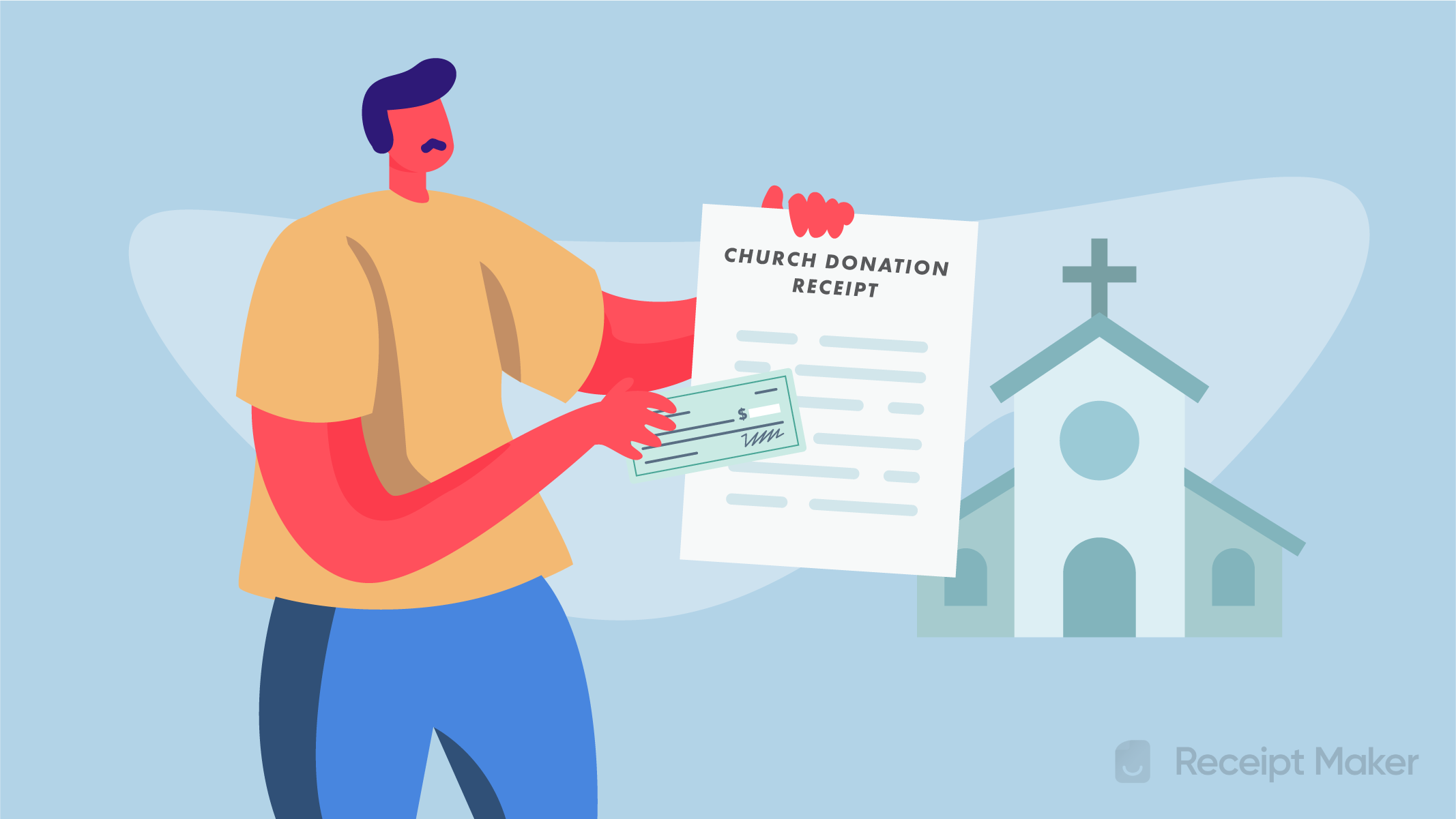A church donation receipt is a written record of a charitable donation made to a church. It can exist in the form of an electronic or physical letter or a standard itemized receipt. Churches are 501(c)(3) tax-exempt organizations, meaning donations to them are tax-deductible.
The IRS generally defines a “church” as an institution with a combination of the following qualities:
- Definite and distinct ecclesiastical government;
- Distinct legal existence;
- Distinct religious history;
- Established place(s) of worship;
- Formal code of doctrine and discipline;
- Literature of its own;
- Membership not associated with any other church or denomination;
- Ordained ministers selected after completing prescribed courses of study;
- Organization of ordained ministers;
- Recognized creed and form of worship;
- Regular congregations;
- Regular religious services;
- Schools for the preparation of its members; and
- Sunday school for the religious instruction of the young.
Table of Contents
Average Church Donation
“Tithing” is the tradition of donating 10% of one’s annual income to a church. This percentage amount has biblical significance. Only 10-25% of church congregation members tithe consistently in the U.S (5.5% of all Americans). Any cash donations beyond the initial 10% are called “offerings.”
In 2020, religious organizations received 28% of all American charitable donations (for context, the next closest category is education at 15%). Christians generally give at an average rate of 2.5% of their income (for more context, this was 3.3% during the Great Depression).
- 95% of Catholics financially support their parishes regularly at varying rates;
- Protestants give an average of $17 per week to their churches; and
- Methodists give an average of $44 per week.
Are Church Donations Tax Deductible?
According to the IRS, church donations are tax deductible if the donor obtains a proper donation receipt and if the church itself is officially tax-exempt. Donated noncash goods are usually deductible at their fair market values. If an individual contributes a noncash item worth more than $500, they will have to file an additional form, IRS Form 8283, that contains a signature from the church’s authorized representative.
For a church to be considered tax-exempt under IRC Section 501(c)(3), it must meet the following criteria:
- The church can’t provide benefits to private interests;
- The church has to be organized and operated exclusively for educational, charitable, religious, or scientific purposes;
- The church’s activities can’t attempt to influence government legislation;
- The church’s net earnings can’t benefit any private individual or shareholder;
- The church’s purposes and actions can’t be illegal or violate fundamental public policy; and
- The church can’t intervene in political campaigns by:
- Making financial contributions to a candidate or political campaign;
- Publicly favoring one candidate over others;
- Acting in any way that has the effect of favoring a candidate or candidates; or
- Publicly opposing candidates in any manner.
What Do Churches Use Donations For?
Churches can use donations for many purposes. The most frequent are:
- Building costs for maintenance and updates;
- Church-sponsored welfare programs;
- General operating expenses;
- Mission work and trips to spread the church’s message;
- Special charity projects; and
- Staffing and personnel.
Church Donation Receipt Policies
Churches can issue receipts on a gift-by-gift basis or as a single annual receipt itemizing all of a donor’s donations in a given tax year. If a gift is $250 or less, a bank record or simple statement from the church will suffice as the donation receipt. If the donation is more than $250, the church has to provide the donor with a full written acknowledgment of the gift.
Written acknowledgments need to include all of the following information:
- Donation amount;
- Donation date;
- Name, address, and EIN of the church;
- Name and address of the donor;
- Specific details explaining the donation (method of payment for cash, physical description for noncash);
- Statement of whether the church exchanged goods or services for the donation, and if they were, that the goods or services qualify as intangible religious benefits.

